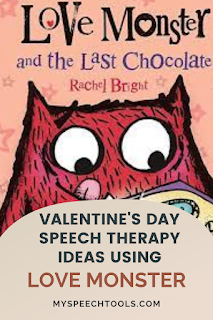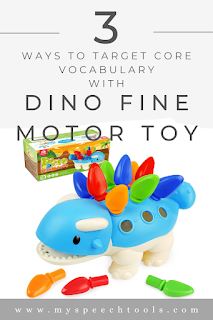I am a big proponent of using visuals during my speech therapy sessions. For my caseload, visuals may be as simple as a sticky note. It can also include a mini-schedule, choice board, core boards, or high tech AAC, such as TD Snap or LAMP. I am currently assigned to a large elementary campus with students from PK-4th Grade, and includes an early childhood special education classroom and a life skills classroom. Most of my students in the early childhood classroom are minimally verbal or non-speaking. I provide push-in therapy to my 3s and 4s this year, and serve them in a small group. My sessions are small and short, but we have a lot of fun and engage in meaningful language opportunities.




.png)
.png)


.png)
.png)
